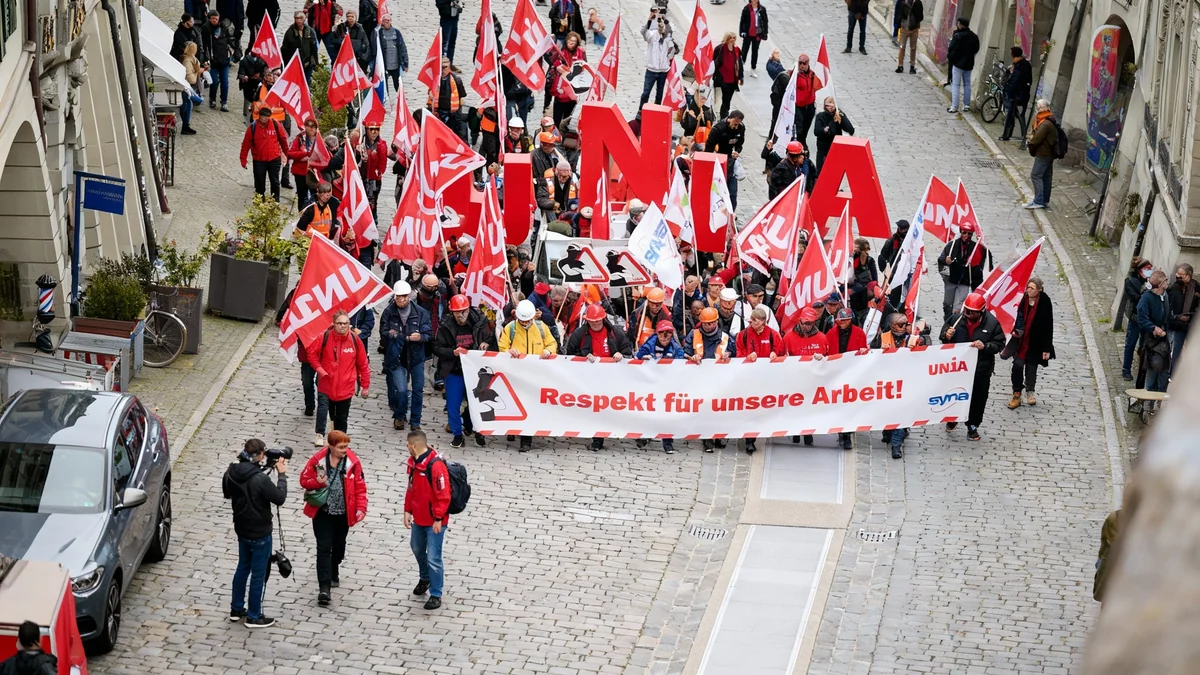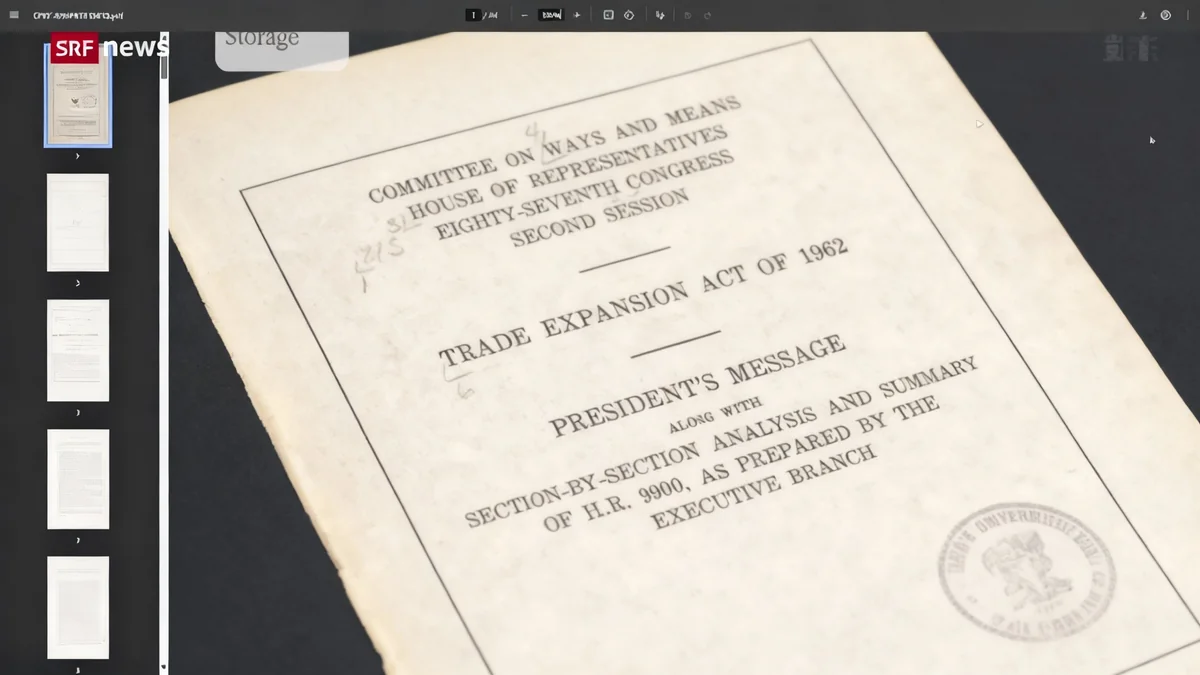Hundreds of construction workers gathered in Bern on Friday to protest for a new national collective labor agreement, known as the Landesmantelvertrag. They voiced strong opposition to proposals for extended working hours and a perceived decline in working conditions, with many Bernese construction sites temporarily halting operations.
Key Takeaways
- Nearly 1,000 construction workers protested in Bern for better labor conditions.
- The current national labor contract for 80,000 workers expires at year-end.
- Unions demand better conditions, citing a growing skilled labor shortage.
- Employers propose longer hours and weekend work without extra pay.
- Further protests are planned across Switzerland if no agreement is reached.
Workers Demand Fairer Conditions Amidst Contract Stalemate
The protest, organized by trade unions Unia and Syna, saw nearly one thousand participants converge on Bern's Waisenhausplatz. Following the rally, a procession moved through the city center. Many construction sites in and around Bern, including major projects like the Bern train station renovation and the new police center in Niederwangen, were affected by the strike.
Workers carried banners expressing their concerns, with one prominent message stating, "No 6-day week on the construction site." This demonstration highlights the ongoing tensions between labor unions and the Swiss Association of Master Builders (Schweizerischer Baumeisterverband) as negotiations for a new national collective labor agreement have stalled.
Fact: Contract Expiration
The current Landesmantelvertrag, covering approximately 80,000 Swiss construction workers, is set to expire at the end of this year. Without a new agreement, the industry faces a contract-free period in 2026, a situation not seen in over a decade.
Negotiations Fail to Bridge Divides
The fifth round of negotiations concluded this week without a resolution. Unions have warned of industry-wide strikes beginning in 2026 if an agreement is not reached before the year's end. This potential for widespread industrial action underscores the urgency of the situation for both sides.
Chris Kelley, Co-Head of Unia's Construction Sector, addressed the crowd on Waisenhausplatz, stating,
"Nothing works without construction workers, and we are showing that today."His remarks emphasized the critical role of the workforce and their collective power.
Addressing the Skilled Labor Shortage
A study commissioned by the Master Builders themselves indicates a significant skilled labor shortage in the construction sector. Nico Lutz, Unia's chief negotiator and executive board member, pointed out that one in two qualified bricklayers is leaving the industry. Projections suggest a deficit of one in four qualified workers by 2030, escalating to one in three by 2040.
Despite this looming crisis, unions argue that employers are proposing conditions that would further deter new talent and push existing workers to their limits. The construction volume continues to grow, placing immense pressure on the current workforce.
Background: Worker Strain
Construction workers often face demanding conditions, including workdays of up to nine hours in summer heat, significant overtime, and extensive travel times to remote construction sites. Unions argue these factors are pushing employees to their physical and mental limits.
Employer Proposals Under Scrutiny
According to union representatives, the Swiss Association of Master Builders is seeking to worsen working conditions. Key proposals from the employers include:
- Allowing up to 400 hours of overtime annually.
- Designating Saturday as a regular workday without additional pay.
- Continued refusal to provide paid morning breaks (Znünipause), which are standard in other industries.
Furthermore, employers reportedly want to formalize travel times to construction sites, which can be extensive due to interregional contracts. They propose that up to two and a half hours of daily travel time could be considered, with half an hour of that being unpaid.
Wages and Starting Salaries
Lutz also challenged the notion that the construction industry offers the highest post-apprenticeship wages. He stated that the Master Builders intend to reduce starting salaries by a quarter. This move, if implemented, could further exacerbate the skilled labor shortage by making the profession less attractive to new entrants.
Union representatives confirm that the employer side has shown no flexibility in their positions over five rounds of negotiations. This rigidity has led to the current impasse and the organized protests.
Nationwide Protests Planned
The Bern protest is part of a series of actions across Switzerland. The first protest day took place on October 20 in Ticino. Following Bern, similar demonstrations are scheduled for next week in French-speaking Switzerland (Romandie) and Northwest Switzerland, with Zurich to follow.
These actions aim to amplify the unions' demands and put pressure on the employers to reconsider their proposals. The widespread nature of the protests indicates a unified front among construction workers across the country.
Employer's Stance
The Swiss Association of Master Builders will hold its delegates' assembly next week to discuss its next steps. They maintain their desire to keep the weekly working hours at 40.5 and advocate for flexible working times. This flexibility, they argue, would allow construction sites to compensate for lost work time due to bad weather. The association asserts that Saturday work would only occur exceptionally and that they are committed to good working relationships. They also propose a long-term account for saving extra hours.
The Master Builders reiterated that the ongoing protest actions violate the existing contract and the peace obligation. However, the unions argue that the severity of the proposed changes warrants such actions.
The coming weeks will be crucial for the future of labor relations in the Swiss construction industry, with both sides standing firm on their positions as the year-end deadline approaches.




